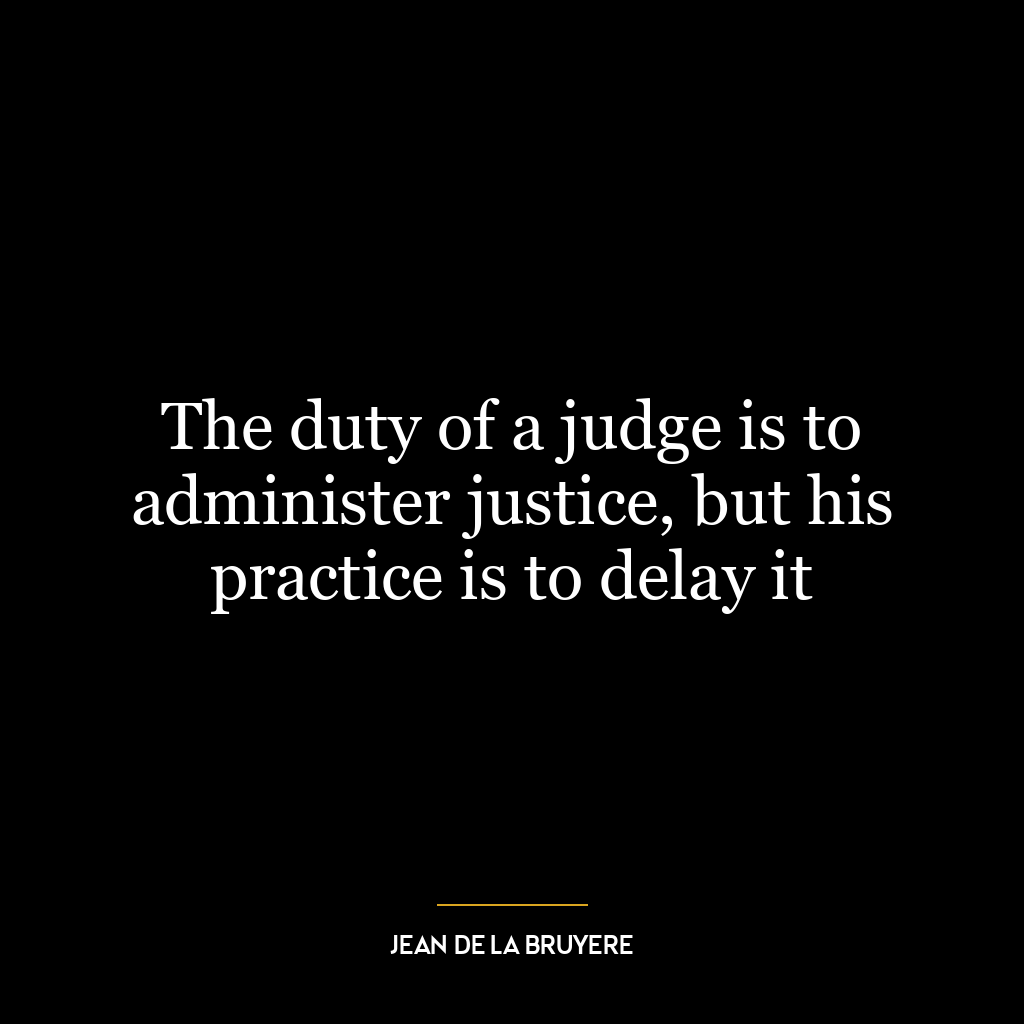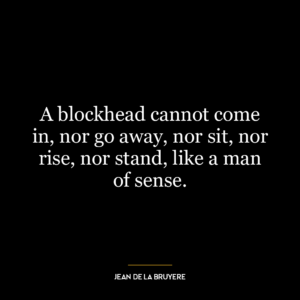The duty of a judge is to administer justice, but his practice is to delay it
This quote by Jean de la Bruyere, “The duty of a judge is to administer justice, but his practice is to delay it” is a commentary on the judicial system. It suggests that while the role of a judge is to ensure justice is served, the reality is that the process often involves delays, which can be seen as a hindrance to achieving justice.
The quote brings to light the inherent tension between the ideal of justice and the reality of its administration. Ideally, justice should be swift and decisive, providing closure and resolution to those involved. However, in practice, legal proceedings often involve lengthy investigations, multiple hearings, and procedural complexities that can extend the process over months or even years. This delay can sometimes result in the denial of justice, as the saying goes, “Justice delayed is justice denied.”
Applying this idea to today’s world, we see that delays in the justice system are still prevalent, and in some cases, have worsened due to factors such as case backlog, underfunded court systems, and bureaucratic red tape. These delays can have serious consequences, such as prolonged detention for those awaiting trial, increased costs for all parties involved, and eroded public trust in the justice system.
In terms of personal development, this quote can be a reminder of the importance of acting with integrity and efficiency in our own lives. Just like a judge, we often have responsibilities and decisions that impact others. It’s our duty to carry out these responsibilities in a timely and fair manner, not allowing unnecessary delays or complications to hinder the process. This could apply to anything from making a tough decision in a leadership role, to resolving a personal conflict, to completing a work project. Ultimately, the quote encourages us to strive for fairness and efficiency in all that we do.















